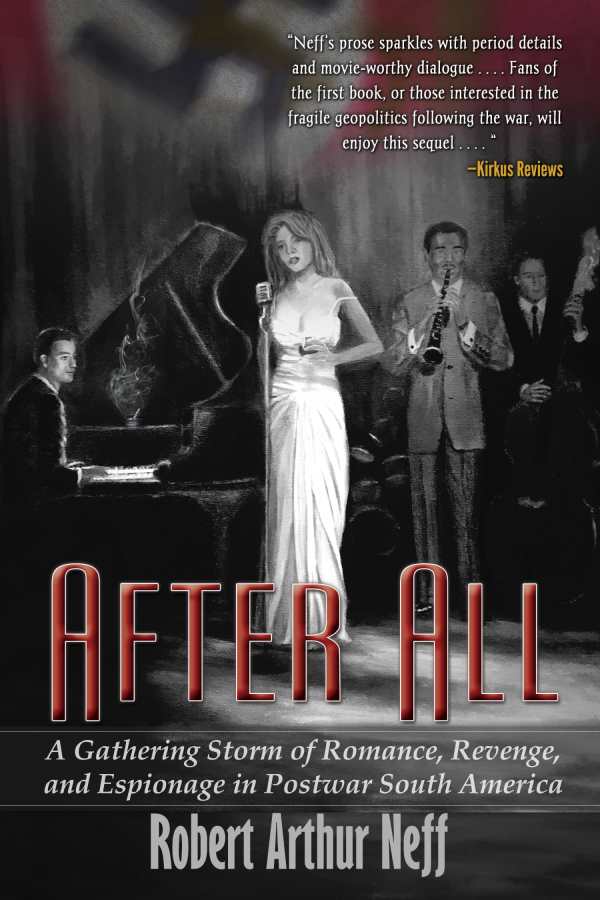After All
A Gathering Storm of Romance, Revenge, and Espionage in Postwar South America
After All is a historical novel full of talented liars, alluring places, and plot points drawn from real life.
In Robert Arthur Neff’s historical novel After All, intrigue and romance collide in post-World War II South America.
After All follows Sofie and Dieter, who escaped wartime Europe and have made a life for themselves as performers at an upscale Brazilian hotel. Just as Sofie’s singing career takes off, she learns she has become the target of American agents who think she can lead them to her father, Otto von Seigler, an escaped Nazi who allegedly stole a fortune in Polish gold. Disparate plot threads clash as everyone, in their own way and for their own reasons, seeks to escape the past.
The integration of historical events, including the creation of the CIA and the election of future Argentine dictator Juan Perón, breathes realism into a well-paced plot that’s filled with intrigue. However, chapters that bounce back to the immediate past create some confusion.
Photographs enhance the narrative, showing the real people and places incorporated into the story. The many international settings, from Soviet-threatened Prague to an Oktoberfest celebration in Blumenau, Brazil, give After All a thrilling atmosphere. However, the story is dialogue heavy, and it’s not always clear who is talking. Conversations are variously stiff and expository.
Sofie and Dieter’s relationship is the story’s center, and both characters are off-puttingly flawed. Dieter betrays Sofie’s trust almost as soon as she leaves on tour, and while his betrayal is an opportunity for both to evolve, it is dealt with in a swift way that leaves no lasting impact on their relationship. Sofie hurls childish insults at a woman she suspects of having a crush on Dieter and defends her Nazi father’s reputation. These behaviors, as well as characters’ reactions to events, don’t always ring true.
Von Seigler himself is portrayed as a man who made one commendable decision for selfish reasons and who claims disgust over Hitler’s methods. That decision is used as a justification for characters to question whether bringing von Seigler to justice is the right thing to do. Their expressions of borderline sympathy for a Nazi war criminal are problematic, making for uncomfortable reading and a story in which no one feels worth rooting for. The story arc about von Seigler and his pursuers evades a true conclusion, and other arcs are resolved in too abrupt a manner.
After All is a historical novel full of talented liars, alluring places, and plot points drawn from real life.
Reviewed by
Eileen Gonzalez
Disclosure: This article is not an endorsement, but a review. The publisher of this book provided free copies of the book and paid a small fee to have their book reviewed by a professional reviewer. Foreword Reviews and Clarion Reviews make no guarantee that the publisher will receive a positive review. Foreword Magazine, Inc. is disclosing this in accordance with the Federal Trade Commission’s 16 CFR, Part 255.

